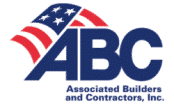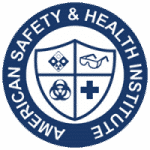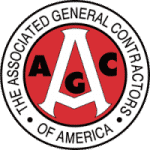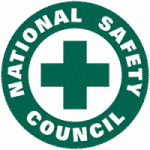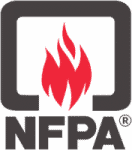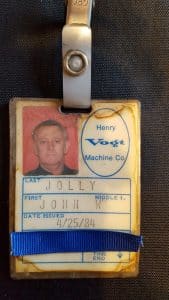
Photo of Anna’s father John Jolly’s work badge.
Interview conducted by Pauline Kerwath
How did you get started in occupational safety & health? Why did you decide to pursue a career in it?
A billion years ago my undergraduate degree was in environmental health, and we did a class in Industrial Hygiene, which was pretty cool. Then I got an internship at Oak Ridge National Laboratory in their Industrial Hygiene Department, and that iced it.
Why was I interested in it?
Well, I was interested in it because my Dad always worked in a factory as a machinist, as did a bunch of my relatives, and I’d always hear these stories about the factory, about thing things that went on in the factory and people getting hurt. That made a big impression upon me. I also read a book in college called The Dollmaker. It was about people from the rural parts of Kentucky moving to Detroit to take jobs in the factories. It described the working conditions, and how a woman was killed by a punch press. I was horrified. People shouldn’t have to lose their lives to put food on the table. That stayed in my mind. At the time worker safety was in the press a lot because OSHA didn’t happen until 1970, and that was a big deal. So, that was part of the reason why it grabbed my interest as opposed to the environmental emphasis. I thought that working with industrial health and safety would be interesting and possibly rewarding.
Did your Dad sustain any injuries at work?
My Dad couldn’t hear worth a hoot and that was because of the factory. I’ve got sad stories about his hearing loss that I usually tell when I teach about hearing loss.
So that’s kind of how I got into it. And by the time I’d done my internship right at the end of school, I was determined that I was going to be an industrial hygienist and work at a big factory somewhere.
Did you have other people around you who were interested in doing that, too?
There were two of us that did the internship at Oak Ridge; Donna, whose name is Hudson now, and I. She went into Kentucky OSHA when she graduated. Really, we were the only two who came out of that degree program with that path. So I got all these membership lists when I was at Oak Ridge in the Industrial Hygiene Department, and I found all these mailing lists from the AIHA or one of those organizations. I sent letters all over the country to potential employers because I was determined. It didn’t matter where I was going, I was going somewhere; I was going to do this kind of work.
No matter where? You weren’t concerned about staying in your home state?
Nope, I was more concerned about getting a good job.
I got one interview from all of that. And I got one job, working with Western Electric here in Richmond—which turned into AT&T Technology. I worked at the plant that manufactured printed circuit boards, and I spent 10 years there as an Industrial Hygienist.
What are some of the developments that have encouraged you over the years?
There has been more of an across-the-board interest in workplace safety than there was back in the 70s, and construction has improved a whole heck of a lot. New technologies have made things safer and better, and those technologies would not even be here if it hadn’t been for the regulatory agencies. The agencies encouraged new technological developments, such as better personal protective equipment which was more appropriate for the job and which fit more people, better ventilation, and better types of equipment for people to use. Those have been encouraging.
What about discouraging developments?
Well, I will say that the initial part of the OSHA ACT was to address illnesses caused by chemicals and while it showed initial promise, it hasn’t done as good a job as it should have. We’re operating now with PELs that came from 1968, despite the progress of technology.
When Facebook became popular, I came across a guy that I’d met at the AT&T plant when I was an IH trying to keep chemical exposures under control. Of course, I hadn’t heard from him in 20 or 30 years. On the instant messaging feature, he told me he had brain cancer from methylene chloride exposures at AT&T from 1977-87. The Permissible Exposure Limit was 200ppm then and his particular job was well under that. Somewhere in the 80s, it was discovered that methylene chloride was a carcinogen, and they dropped the PEL, so it’s at 25ppm now. I learned subsequently that he died. So in this country, we haven’t done a good job with addressing chemical exposures.
Other disappointments are that in this current age with the demise of the power of the labor unions, worker safety and health is not that important in this country, politically speaking. Very few people are pushing for this. OSHA is trying to mind the store but as a political entity, they need more support. The last big promoter of worker safety in Congress was Edward Kennedy. And there hasn’t been anybody who has been very interested in it since. I mean, it’s still there. We still kill people. We still injure people. So that is a big disappointment. I worry about moving into the future in this day of deregulation because you’ve got to have both the carrot and the stick.
What are some of the issues you’d like to see addressed by OSHA?
I’d like to see the PELs updated so that they weren’t from 1968.
Any others?
Since the Trump administration, the OSHA website is not nearly as good as it used to be. I don’t think they’re keeping it up, and it takes forever to find anything. Also, there are interminable technical issues, but that’s not permanent.
Are there any issues you’d like to see OSHA address?
They did a pretty good job in the eight years of the Obama administration with David Michael. He really did a good job of addressing some important issues like silica. There’s not really any particular issue that I think needs to be addressed immediately. They just need to figure out how to move these rulemaking things forward better and in a more timely fashion. They need to be steady—and not sell out to these anti-regulatory people and just roll over.
Do you have any words for people who are interested in pursuing this kind of career?
Well, it can be fascinating. There’s always something new and different to learn. But it can also be a tough career in that you’re not an employee and you’re not management. So you’re in this position where you’re between both of them, and half the time you’re not popular with either side. But there’s always something new to learn. And it’s been a great career for me. I always find something fascinating to learn, even after all this time. And depending on what you do in this field you’ll always be out there seeing how people work and figuring how to make them safe. So it can be very gratifying.

